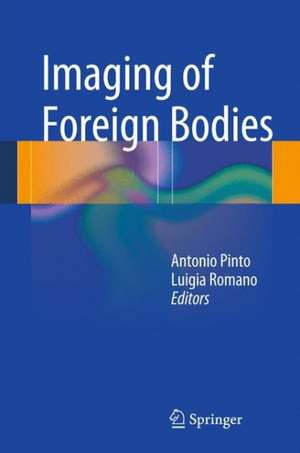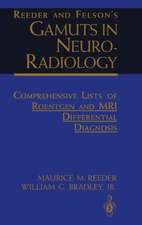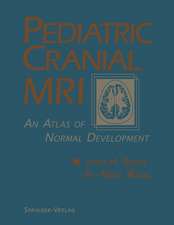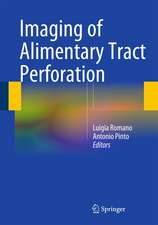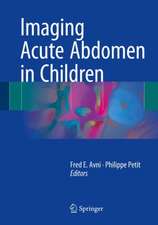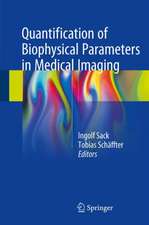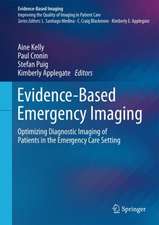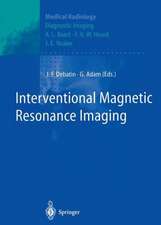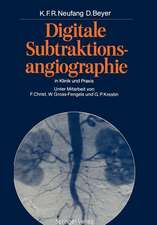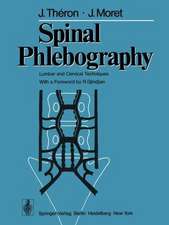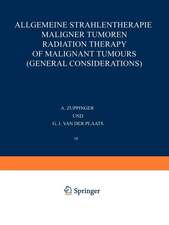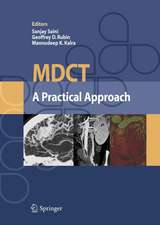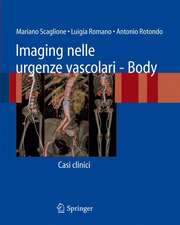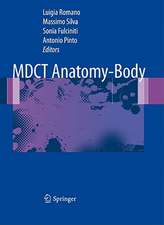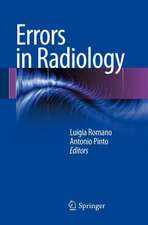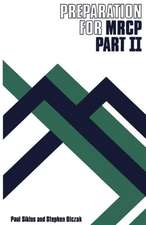Imaging of Foreign Bodies
Editat de Antonio Pinto, Luigia Romanoen Limba Engleză Hardback – 27 noi 2013
| Toate formatele și edițiile | Preț | Express |
|---|---|---|
| Paperback (1) | 448.69 lei 38-44 zile | |
| Springer – oct 2016 | 448.69 lei 38-44 zile | |
| Hardback (1) | 640.30 lei 38-44 zile | |
| Springer – 27 noi 2013 | 640.30 lei 38-44 zile |
Preț: 640.30 lei
Preț vechi: 674.01 lei
-5% Nou
Puncte Express: 960
Preț estimativ în valută:
122.52€ • 126.40$ • 102.24£
122.52€ • 126.40$ • 102.24£
Carte tipărită la comandă
Livrare economică 22-28 martie
Preluare comenzi: 021 569.72.76
Specificații
ISBN-13: 9788847054059
ISBN-10: 8847054052
Pagini: 200
Ilustrații: VIII, 128 p. 87 illus., 22 illus. in color.
Dimensiuni: 155 x 235 x 15 mm
Greutate: 0.3 kg
Ediția:2014
Editura: Springer
Colecția Springer
Locul publicării:Milano, Italy
ISBN-10: 8847054052
Pagini: 200
Ilustrații: VIII, 128 p. 87 illus., 22 illus. in color.
Dimensiuni: 155 x 235 x 15 mm
Greutate: 0.3 kg
Ediția:2014
Editura: Springer
Colecția Springer
Locul publicării:Milano, Italy
Public țintă
Professional/practitionerCuprins
1 Plain film and MDCT assessment of neck foreign bodies.- 2 Foreign bodies in the tracheobronchial tree.- 3 Foreign bodies of the gastrointestinal tract.- 4 Intra-abdominal foreign bodies: gossypiboma and abdominal wall meshes.- 5 Abdominal compartment syndrome due to hepatic packing.- 6 Foreign bodies as complications of biliary stents and gastrointestinal stents.- 7 Endovascular foreign bodies.- 8 Foreign bodies as complications of endovascular devices.- 9 Retained intracranial and intraspinal foreign bodies.- 10 Role of magnetic resonance imaging in diagnosing foreign bodies.- 11 Soft tissue foreign bodies.- 12 Foreign bodies and penetrating injuries.
Textul de pe ultima copertă
Most ingested foreign bodies pass through the gastrointestinal tract without a problem. However, both ingested and inserted foreign bodies may cause serious complications, such as bowel obstruction or perforation. Foreign body aspiration is common in children, especially those under 3 years of age, and in these cases chest radiography and CT are the main imaging modalities. This textbook provides a thorough overview of the critical role of diagnostic imaging in the assessment of patients with suspected foreign body ingestion, aspiration, or insertion. A wide range of scenarios are covered, from the common problem of foreign body ingestion or aspiration in children and mentally handicapped adults through to drug smuggling by body packing and gunshot wounds. Guidance is offered on diagnostic protocols, and the value of different imaging modalities in different situations is explained. Helpful management tips are also provided. This textbook will prove invaluable for residents in radiology, radiologists, and physicians who are involved on a daily basis, within an emergency department, in the management of patients with suspected ingestion, aspiration, or insertion of foreign bodies.
Caracteristici
Thorough overview of the role of diagnostic imaging in the assessment of patients with suspected foreign body ingestion, aspiration, or insertion Explains how knowledge of X-ray and CT appearances of foreign bodies can reduce the rate of diagnostic errors Offers guidance on diagnostic protocols that will help to avoid errors in patient management?
